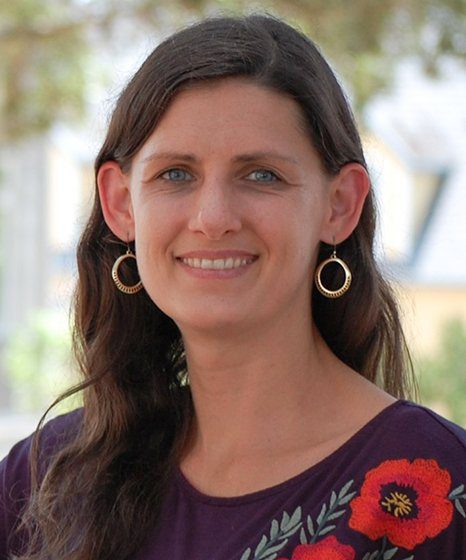
Anton Sorkin

The American Bar Association (ABA) has issued a Memorandum for proposed changes to several Standards, among them being a proposal to amend Standard 303 to include the requirement that all law schools shall provide training and education to law students on “bias, cross-cultural competency, and racism” (1) at the start of the program of legal education, and (2) at least once again before graduation. This requirement may be achieved through various measures, including:
- orientation sessions for incoming students;
- guest lectures or trainings by experts in the areas of bias, cross-cultural competency, and racism;
- courses on racism and bias in the law; or
- other educational experiences that train students in cross-cultural competency.
As the interpretation envisions, “law schools must demonstrate that all law students are required to participate in a substantial activity designed to reinforce the skill of cultural competency and their obligation as future lawyers to work to eliminate racism in the legal profession.” With augmenting tensions and campus divisions among students on sensitive topics like race and religion, this is the perfect time for the ABA to attempt another top-down measure (see this) in order to enshrine what will ultimately amount to a symbolic victory. While similar efforts have recently failed in Texas, why not give this a try?
The bottom line is this: steps to provide training and education on “bias, cross-cultural competency, and racism” cannot be accomplished by fiat. To the extent that the ABA wishes to promote professional identity formation and diversity among peers and staff-members based on various protected categories, I applaud the spirit! The history of racism in this country remains a shameful legacy and its true vestiges must be identified and rooted out. The church has often been on the wrong side of this issue and must make a concerted effort today to understand the psychological toll this history has imposed and fight to change those policies that disenfranchise people of color and create barriers to their full participation in society. Racism is a steadfast sin that takes on many evolved forms, to borrow from Rainer Rilke, like a “coddled loyalty of an old habit that liked it here, lingered, and never left.”
To that end, let’s have these conversations – without the threat of accreditation! Conversations that allow for a broad and nuanced discussion on race and society. Conversations that involve a diversity of opinions, where the thinking of Robin DiAngelo and Ibram X. Kendi will be forced to engage with the skeptical approaches of various scholars on critical theory, identity politics, and racial inequality. Conversations that engage the lingering bias against the interaction of law and religion and the value of religion to cauterize the wounds of our historic failures. Conversations that more broadly address the ongoing assaults that students of faith have faced form their peers that show a systemic cross-cultural (in)competence, from across the country, by those who find it prudent to signal their support for defunding or removing student associations, without the requisite attempt to seek understanding and reconciliation.
Viewpoint diversity is perhaps the single most basic value we could all embrace on matters of civic participation. This task asks us that we treat questions surrounding the controversial issues in the manner befitting of a thinking people – building out our prudence and behavior immunity in accordance with true threats and opportunities for personal growth. By leaving controversial topics to the confines of only one view (which I suspect the ABA’s process will create), we risk abandoning the tenets of our founding tradition and seek to impose a reformation of manners based on the preferences of the governing elite. And, what then, with the changing of the guards? Do we expect our parties to partake in the partisanship rancor indefinitely so that our institutions, in the wise admonition of Yuval Levin, continue to fall into distrust and eventual disrepair? By no means! I say, with the words of John Courtney Murray, let us “endeavor to dissolve the structure of war that underlies the pluralistic society, and erect the more civilized structure of the dialogue.” To stand on the foundation of Thomas Jefferson’s advice, who saw it best that Error be made to compete with the radiance of Truth and be made an example by that awesome disinfectant.
Whether the ABA proposal passes or fails, it will not inculcate a good faith agenda to serve the underlying process toward meaningful change. Individual convictions will not change through superficial conditions of participation. At best, students will endure these programs through muted screens and detached personalities. At worse, they will serve to divide students on pressing issues of concern, confirm fears of a power grab from the modern managers of antiracism, and offer a false substitute for discussions that deserve a process more responsive to the present moment. Participation requires more than just present bodies; it requires open minds engaging open minds through the violence of difference. For “[c]ivility dies with the death of the dialogue,” wrote Murray, and “[s]ociety becomes barbarian when men are huddled together under the rule of force and fear[.]”[1] The ABA seems poised to lead the funeral procession. Come now, let us find a better way!
[1] See John Courtney Murray, America’s Four Conspiracies, in Religion in America 25-26 (Cogley ed., 1958).

Mike Schutt
Director, CLS Law School Fellows

Alanna Walker
Grants Coordinator

Michelle Williams
Law Student Ministries Coordinator
GET UPDATES
The views expressed on the CLS Blog are the views of the individual authors and do not necessarily reflect the positions of Christian Legal Society.
The purpose of the CLS Blog is to generate discussion with a free exchange of ideas and opinions.
▦ |CLS - Christian Legal Society © 2024|














































